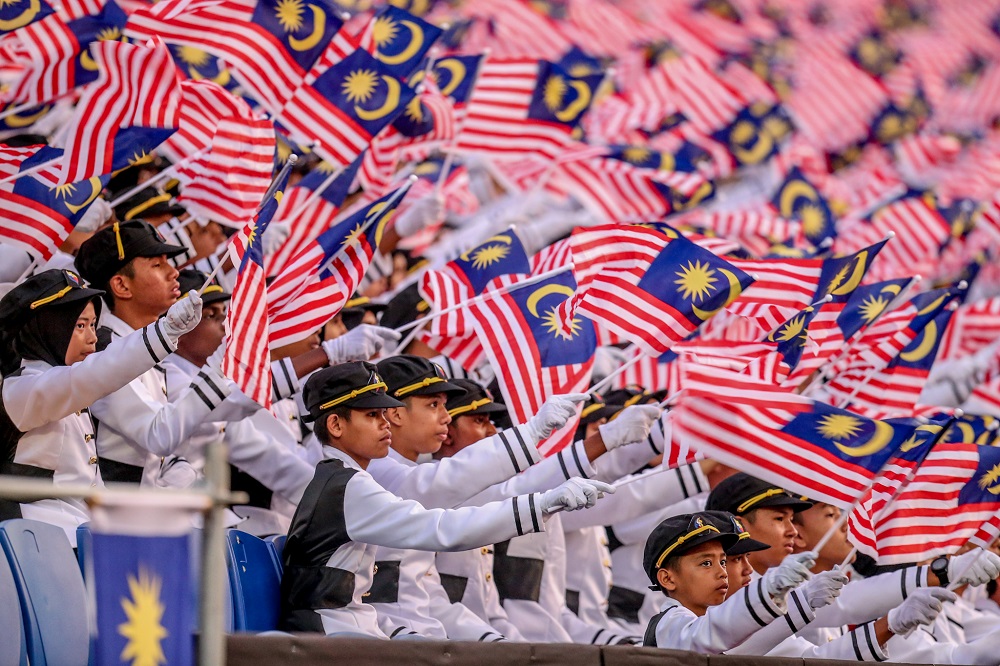KUALA LUMPUR, Nov 28 ― EMIR Research’s inaugural National Worry Index (NWI) released today revealed that half of Malaysians polled were unsure as to whether the country is on the right track for the future.
Taking responses from 1,992 respondents from all backgrounds and ethnicities throughout Malaysia, the survey showed 24 per cent disagreeing with the direction the country is taking for the future, 26 per cent agreeing, and 50 per cent unsure.
As for the Pakatan Harapan (PH) government’s viability, 46 per cent said they were unsure of it, 24 per cent said the pact is viable, while 30 per cent disagreed with PH’s viability.
It was almost the same when they were asked if the country’s economy is on a strong footing. The results from the survey showed 44 per cent were unsure about the economy’s strength, 26 per cent were happy with it while 30 per cent were unhappy.
“What’s important to see is the fact when talking about viability and economy about the government, there are more who disagree than agree,” said International Islamic University Malaysia’s Assistant Professor Tunku Mohar Tunku Mohd Mokhtar.
“We can also safely say that about three-quarters of the population do not think the country is on the right track and the economy is not on a strong footing.”
Urban Malaysians more supportive
The NWI data also showed that urbanites were more likely to support the government, compared to those in the rural areas when they were asked the same three questions.
Around 40 per cent of respondents who live in rural communities feel the PH government is not a viable government, 32 per cent said the country is heading in the wrong direction while 37 per cent think the economy is in shambles.
For urban Malaysians however, 27 per cent think the PH government is not a viable government while 22 per cent are not satisfied with the country's future direction. About 28 per cent of them believe the economy is not on a strong footing.
Racial dimensions
When looking at the racial dimensions, only 19 per cent of Malays and Bumiputera agree that the PH government is viable, followed by 37 per cent Chinese and 22 per cent Indians.
“When we look in terms of ethnic differences this is interesting. Looking at the Malays and Chinese they are diametrically opposite.
“Thirty six per cent of the Malays think the government are not viable while 37 per cent of the Chinese think this PH government is viable. Again you can see the Malays are the least among the three that feel the current government are viable,” said Prof Tunku Mohar.
As for the Indians, 22 per cent think the government are viable while 29 per cent think otherwise.
The majority of the respondents from all three races are in the “unsure” category with the Malays and Chinese tied at 45 per cent while the Indians top the list at 49 per cent.
Income dimensions
As for income differences, the survey showed those with higher income were more optimistic about the government’s viability and the country’s future direction.
About 23 per cent of those earning less than RM3,000 feel that the government is on the right track, 25 per cent disagreed with it while 52 per cent said they were unsure.
As for PH government’s viability, 21 per cent feel it is a viable government, 32 per cent disagreed with PH’s viability while 47 per cent were unsure.
Those earning RM3,000-RM5,000, 34 per cent feel the government is on the right track, 21 per cent said no while 46 per cent were unsure. As for PH’s viability, 35 said they were happy with the government, 24 per cent said they were not while 41 per cent of respondents said they were unsure.
The approval rate for the government was the highest for those earning more than RM5,000 according to the survey.
It showed that 39 per cent were happy with the direction the government is taking and the same percentage applied when asked about the government’s viability.
Only 17 per cent of respondents in the above RM5,000 category felt the government was heading in the wrong direction while 44 per cent were unsure.
As for its viability, 22 per cent disagreed with the PH government’s viability and 39 per cent said they were unsure.
Overall, the survey showed that most Malaysian’s were still unsure if this current government is the best option for them. It could partly be down to PH being in government for barely two years and more time is needed for them to prove themselves.
The NWI is the first report of its kind by think-tank EMIR Research. Its chief executive officer is Datuk Rais Hussin Mohammad Ariff, who is a Bersatu supreme council member.



















